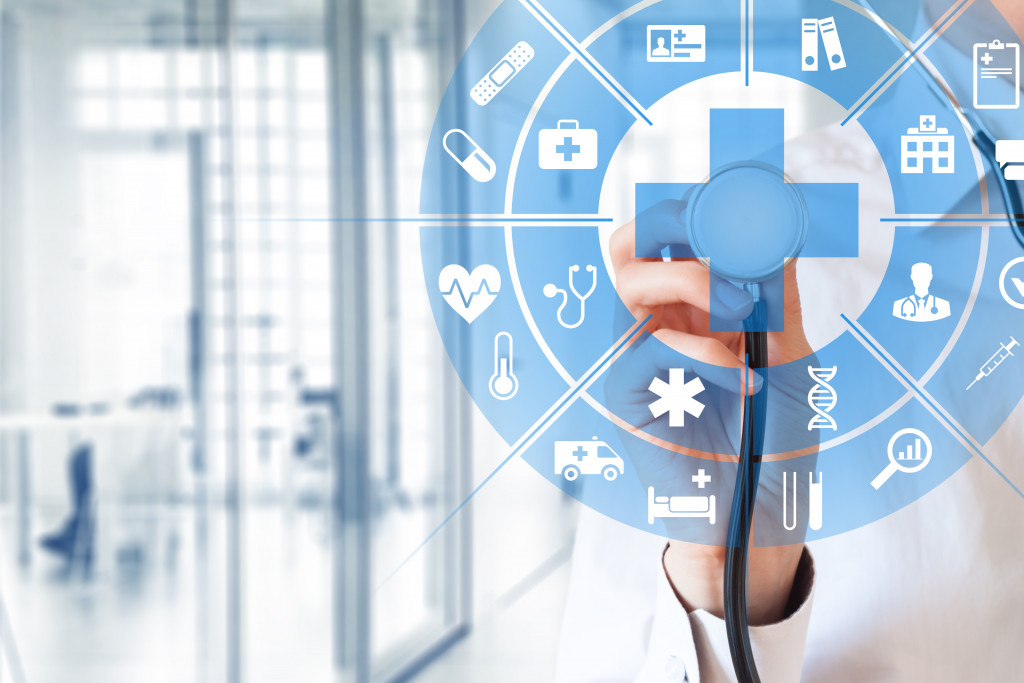The COVID-19 public health crisis was a big wake-up call for the entire world, but perhaps more so for the medical sector and industry. While many epidemiologists did their best to warn and remind people that diseases of this scale can come anytime, the world was still largely unprepared for the havoc that the virus was about to wreak.
Thankfully, even as diseases come and go, humanity remains resilient. Every day new technologies are developed and discovered. As long as governments and corporations work together to support scientists and researchers, we might be on top of every other potential epidemic or pandemic that may come our way. Experts in the medical field are always working hand in hand with engineers to develop new tech tools that can help protect and save humanity from various kinds of illnesses. Here are some exciting developments in medical technology and why experts say they’re going to change the world.
Safer surgeries and procedures
While no robot or artificial intelligence (AI) will ever take the place of a fully-trained human surgeon, technology and human hands working together can create a symbiotic relationship that makes surgeries and procedures safer and less risky for patients.
One example of this is the use of augmented reality (AR), which can potentially superimpose limitless digital information into our physical world. A research facility is in the process of prototyping AR applications in medical procedures. They are working on an AR headset that would allow digital images to be directly overlaid on the surgeon’s field of vision. The headset would then be equipped so that it’s able to display a holo-type and accurate version of the patient’s heart and vital signs and information on the patient’s brain activity. If everything goes well, this technology may help surgeons focus on the task since they won’t have to look away from the patient on the table to gather information from multiple displays.
The project called “Augmentarium,” if successful, can help save countless lives and decrease medical errors during surgery.

Revolutionary equipment and treatments
Here are some of medicine’s biggest breakthroughs in 2020:
- Fast-acting insulin. Everyone with diabetes, both type 1 and type 2, knows that failure to control blood sugar levels can increase the risk of other diseases like kidney failure, heart disease, and nerve damage. Traditional insulin is inconvenient to administer, but they also have a narrow window and an exact time when it can be used to function properly. Thankfully, a new type of treatment called Lyumjev has been discovered—insulin that can be administered anytime within 20 minutes of taking a meal. It contains an ingredient called treprostinil, which is responsible for dropping the time it takes for other treatments to work.
- Smartwatch that detects sleep apnea. A lot of people don’t take sleep apnea seriously but left untreated, it can potentially increase one’s risk of hypertension as well as recurrent heart attacks. Experts also say that 8 in 10 cases of sleep apnea remain undiagnosed. This is why a company called Withings came up with ScanWatch, which rings an early-warning system for sleep apnea sufferers who may not know they have it. The watch uses different sensors and a heart rate monitor to check for dips in oxygen levels and breathing disturbances in its users. While the watch is not enough to diagnose sleep apnea, it’s sufficient to warn users to go to the doctor when needed.
- Robotics and automation. Medical air compressors are necessary for the healthcare industry. They assist patients’ breathing, generate pressure for a lot of medical devices, and generate power for tools used to maintain and repair equipment and structures in hospitals. Robotics is now being used to automate different kinds of medical equipment that are saving people’s lives every day. Thanks to robotics and automation, the system of producing these devices are much more efficient and accurate.
Patient portals
With countless hospitals being filled to the brim due to the pandemic, many patients were forced to make do with patient portals, consult with their doctors from the safety and comforts of their homes. These portals are safe and secure websites that give users 24-hour access to their private health information all in one place, schedule appointments, and request prescription refills.
The pandemic may be taking a toll on the world, but imagine if we didn’t have the technology we do now. It would have been a much more challenging crisis to have to live through. As long as researchers, scientists, and engineers remain funded; humanity may have a fighting chance of surviving what diseases may come next.
